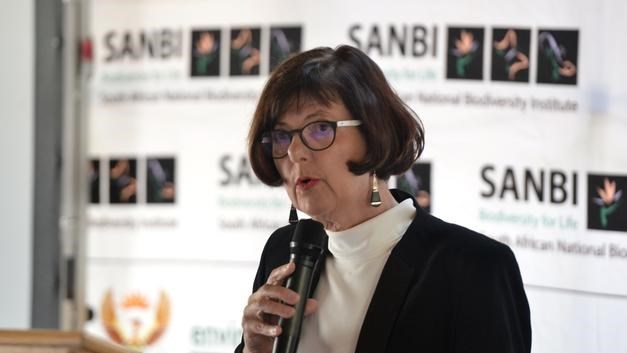South Africa
Quotas for trophy hunting in 2022 confirmed─── 10:33 Sun, 27 Feb 2022

Forestry, Fisheries and the Environment Minister, Barbara Creecy, has confirmed the quotas for the trophy hunting of black rhino, leopard and elephant in South Africa for 2022.
The 2022 quotas for the hunting and export of trophies from these three species is a deferral of the 2021 allocation, which was determined after the end of the hunting season.
The deferral grants stakeholders the opportunity to make use of the 2021 quota in 2022. Consultation for the 2023 quota will take place during the course of this year.
The quota for leopard has been set at 10 animals, and is informed by robust data generated through a sophisticated national leopard monitoring programme.
Leopard hunts will only be allowed in areas where leopard populations are stable or increasing, and only male leopards seven years of age or older may be hunted.
Implementing a strict seven-year age minimum for trophy leopards dramatically reduces the risk of overharvesting.
A total of 10 black rhino may be hunted, and 150 elephants.
Only adult male black rhinos will be hunted, and only on conservation management grounds in accordance with a set of strict criteria to ensure that demographic and/or genetic conservation is enhanced (as stipulated in the black rhinoceros Biodiversity Management Plan).
The quota for black rhino is based on the national population estimates for black rhino per subspecies, all three of which show an increasing trend at present.
Only a very small portion of the overall elephant population is hunted in a year (less than 80 elephant bulls, which is less than 0.3% of the total population).
The national elephant herd shows an increasing trend and the quota of 150 is well within sustainable limits.
The quotas will be published in a Notice in accordance with the Convention on International Trade in Endangered Species of Wild Fauna and Flora (CITES) regulations and in terms of the National Environmental Management: Biodiversity Act (NEMBA).
South Africa is one of many countries that implement a sustainable off-take of elephants, black rhino and leopard.
This is aligned with the best available scientific information on their conservation status and ensures that hunting of these animals does not have a negative impact on the wild populations of these species. Regulated and sustainable hunting is an important conservation tool in South Africa as it incentivizes the private sector and communities to conserve valuable wildlife species and to participate in wildlife-based land uses, ultimately contributing to the conservation of the country's biodiversity.
Income generated by trophy hunting is especially critical for marginalised and impoverished rural communities.
Through the National Biodiversity Economy Strategy, opportunities are created for direct involvement of communities in conservation and the wildlife economy in rural areas to develop the full value chain of wildlife-based activities that create economies of scale in support of accelerated rural economic development and associated employment and poverty reduction opportunities.
The hunting sector conservatively contributed R1.4 billion to the economy in 2019, excluding the economic contribution to tourism and all hunting and safari-related industries. The income generated by the species fees totalled approximately R1.1 billion, of which approximately R208 million were derived from the trophy hunting of threatened or endangered species.
The biodiversity sector employed more than 418 000 people in 2019, which is comparable to mining. It is a sector that is expected to continue to show economic and employment growth in the foreseeable future.
These species are central to a vibrant international hunting industry, and hunting is a part of the South African heritage and culture. This is a sector that generates economic benefits as part of the South African rural economy.
The Convention on International Trade in Endangered Species of Wild Fauna and Flora (CITES), requires South Africa to establish hunting export quotas for the African Elephant, Black Rhino and Leopard.
The quotas, which are subject to scientific scrutiny by the Scientific Authority and the public, are also communicated to provincial MECs for environment for implementation.
South Africa's allowable annual export quota established by the Parties to CITES is 150 Elephants, 150 Leopards and 0.5% of the black rhino population.
Statement supplied.














